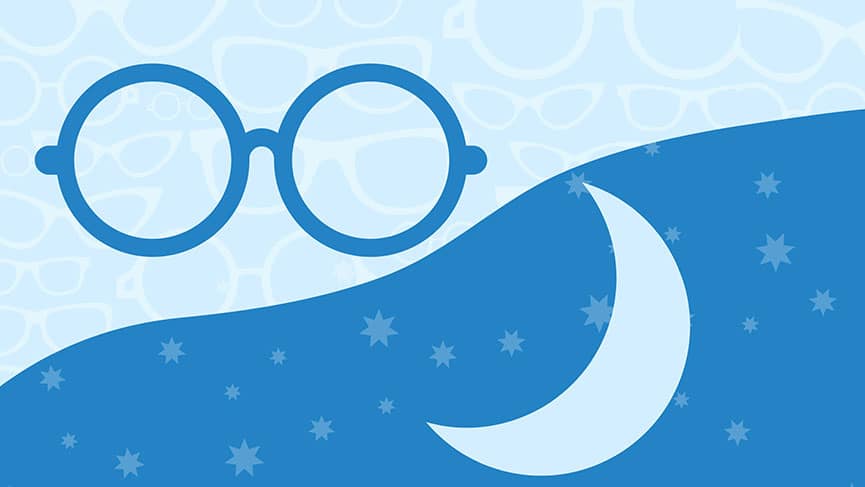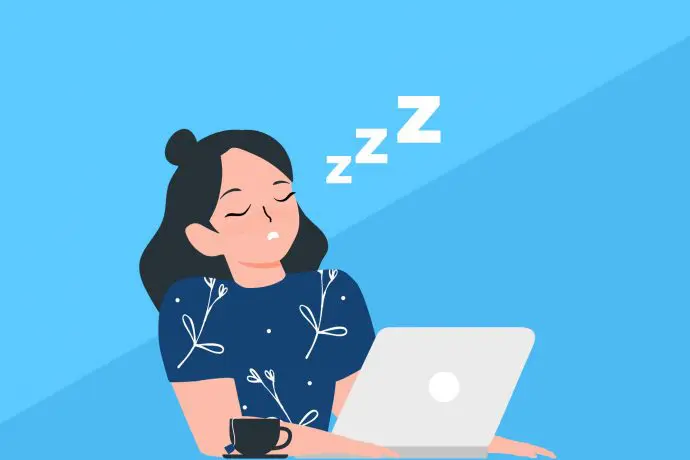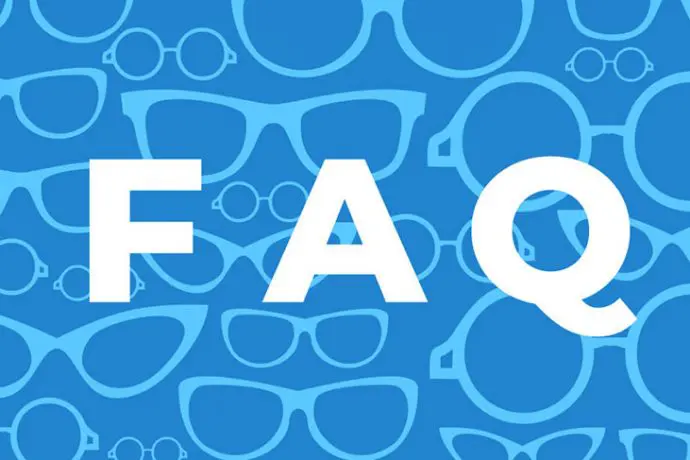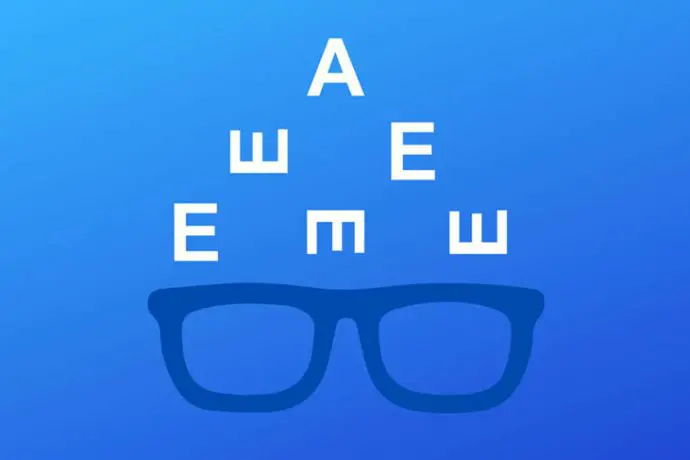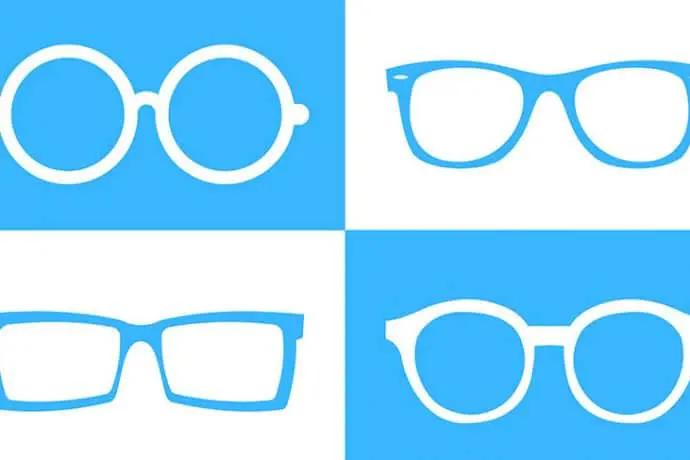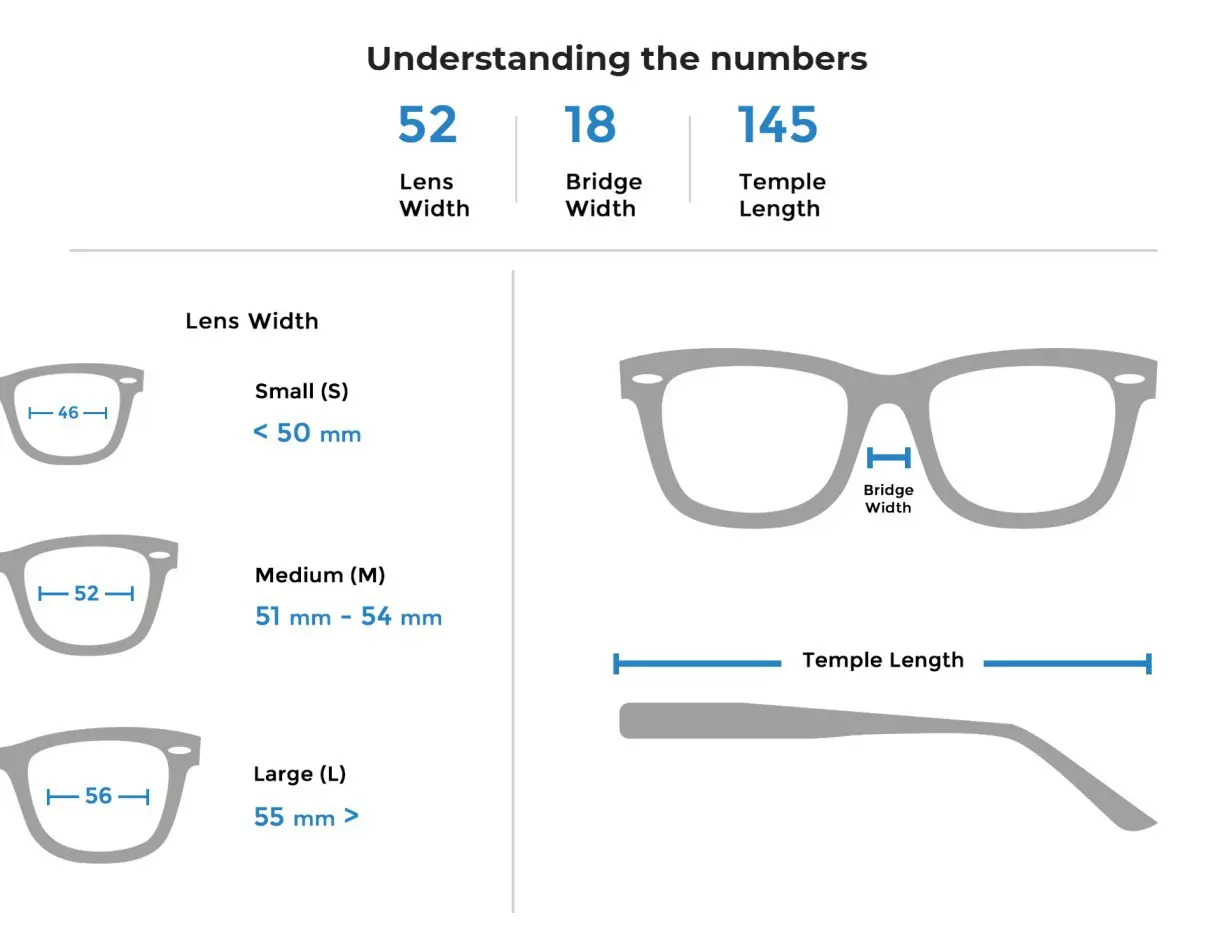Blue Light Glasses vs. Night Mode
We’ve all heard that too much blue light can be detrimental to our health. Spending nearly all day and night using digital devices can cause symptoms of digital eye strain, headaches, watery eyes, and even sleepless nights.
Currently, the two most common ways to combat blue light is by either wearing blue light glasses or using night mode on your phone. In this article, we’re breaking down the differences between the two to help you decide which option is best for you.
Blue Light Glasses vs. Night Mode
What is night mode?
Night mode or night shift is a feature on your cell phone that reduces the amount of blue light your device emits.
As concern around blue light continues to rise, many laptops are now beginning to offer the night mode feature as well.
Night mode can be turned on and off manually, according to your preferences, or it can be set to turn on automatically during the natural times the sun sets and rises in your location.
When night mode turns on, it adjusts the colors of your display to warmer tones, therefore reducing the amount of blue light coming from your screen.
While night mode does seem like a fantastic and unobtrusive way to adjust the amount of blue light you are exposed to, there is still no conclusive evidence as to how much blue light is actually being filtered out. Although using night shift on your devices is definitely a step in the right direction, additional protection is still highly recommended.
What are blue light glasses?
Blue light glasses are glasses that contain special lenses made with, or coated in, materials that filter out harmful blue violet light.
These types of lenses are able to successfully block out the blue light emitted from digital devices while protecting your eyes from glare and UV rays.
With more and more time being spent on screens these days, many individuals are turning to blue light glasses to help protect their eyes from overexposure to blue light.
Blue light glasses are easy to wear and incorporate into your everyday routine. Simply put on your pair of blue light glasses and wear them all day. Whether you are looking at a screen or not, blue light glasses can help protect your eyes from overexposure to blue light.
Is night mode the same as blue light glasses?
In short, night mode and blue light glasses are not the same.
Night shift, or night mode, is a great feature to use while on the computer or phone. However, the result is not exactly the same as wearing blue light glasses. Rather than actually filtering out harmful blue light rays, night mode provides digital device users with amber tinted vision.
When turning night mode on, you will notice that the colors on your digital device take on a more yellow hue.
On the other hand, blue light glasses offer much more quality protection against blue violet light. This is due to the special materials used to make the lenses. Depending on the quality of the lens, blue light filtering glasses are able to filter out different percentages of blue light, thus protecting the eyes from its harmful side effects.
Blue light glasses should not filter out 100% of blue light as blue light is necessary for our bodies to recognize when they should begin producing melatonin (the hormone that makes us feel tired).
Should you use night mode?
If you are wearing blue light glasses all day, night mode is not necessary.
However, if you do not have blue light glasses, then night mode can be a good alternative. It is important to note that night mode will not have the same effect that blue light glasses do as it cannot filter out blue light.
Night mode is better than not using any protection at all, but because it can only be used on one particular device, it cannot protect the eyes from other sources of harmful blue violet light.
For this reason, we always recommend wearing blue light glasses.
Our team at bluwinx believes that you have the right to a good night’s sleep. That’s why we offer fashionable frames with bwgf Lens technology that provides unsurpassed protection against harmful blue-violet light.
If you are interested in learning more about blue light, visit our blog, and read more about blue light and sleep-related topics.
If you have any additional questions, don’t hesitate to reach out – email us at help@bluwinx.com!

